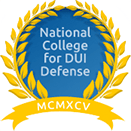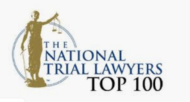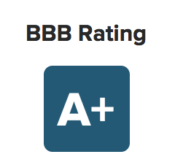Failure to Comply with IDRC
For those individuals convicted of Driving While Intoxicated and/or Refusal to Submit to a Breathalyzer, the court will most likely require you to spend time at the Intoxicated Driver Resource Center. Failure to comply with or complete the program could result in additional charges or even a court-ordered license suspension. A conviction for driving while suspended due to your failure to comply with IDRC procedures, carries varying penalties depending on your driver’s abstract. For assistance with your charges, contact the Law Offices of Jonathan F. Marshall today.
What is the Evaluation Procedure for IDRC in New Jersey?
During the first offender program or the 48–hour program, IDRC staff shall distribute to each client, for completion, the Intoxicated Driver Program Questionnaire (“evaluation instrument”), which is a self-administered drinking and driving inventory that addresses the following areas: quantity/frequency of alcohol intake, current binge behavior, symptomatic drinking, spouse-relative problems, friend-neighbor problems, job problems, law and accident problems, health problems, financial problems, belligerent drinking, and dependency. You must complete all these forms in the time required. Any failure to do so could result in noncompliance with the program.
Most Common Types of IDRC Non-compliance
Under N.J.A.C. 10:162–2.2, failure to appear at an Intoxicated Driver Resource Center shall result in a referral to Division of Motor Vehicles for appropriate action, and, referral to the court of conviction for appropriate action. Moreover, failure on the part of the client to comply with the course of action or fee schedule required by the Intoxicated Driving Program/Intoxicated Driver Resource Center or the course of action at an affiliated agency or provider shall result in a report of noncompliance to the sentencing court and the Division of Motor Vehicles for appropriate action pursuant to N.J.S.A. 39:4–50(b).
Pursuant to N.J.A.C. 10:162–7., improper conduct, such as being threatening or disruptive or purposely not completing forms or providing relevant information, will also be considered non-compliance.
Additionally, under N.J.A.C. 10:162–7.2, if you appear to be under the influence of alcohol or drugs upon arrival or during the Intoxicated Driver Resource Center session, the Intoxicated Driver Resource Center may find you in non-compliance.
Lastly, and the most common form of non-compliance, is “failure to attend the Intoxicated Driver Resource Center/Intoxicated Driving Program or pay the required fees”, under N.J.A.C. 10:162–8.1. Here, failure to attend the Intoxicated Driver Resource Center/Intoxicated Driving Program or to pay the required fees shall be considered noncompliance. In such cases, the Intoxicated Driver Resource Center/Intoxicated Driving Program shall take the following steps:
1. A notice of noncompliance shall be mailed to the client’s address on the record of conviction or the client’s most recent address if the client has notified the Intoxicated Driver Resource Center/Intoxicated Driving Program of a change of address.
2. If there is no reply, or if the client remains in noncompliance, the Intoxicated Driver Resource Center/Intoxicated Driving Program, within 10 working days of mailing the notice of noncompliance, may issue a noncompliance report:
i. A copy of the report shall be mailed to the client.
ii. If the client is a new law offender, a copy of the report shall be mailed to the court of conviction with a copy of the original notice of noncompliance.
3. If the noncompliance is not resolved within 30 calendar days after issuance of the noncompliance report, a copy of the noncompliance report and supporting documents shall be mailed to the Intoxicated Driving Program. The Intoxicated Driving Program shall request that the Division of Motor Vehicles suspend the client’s license.
For immediate assistance with the restoration of your drivers license, contact the Law Offices of Jonathan F. Marshall today at 855-450-8310.











